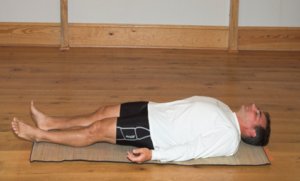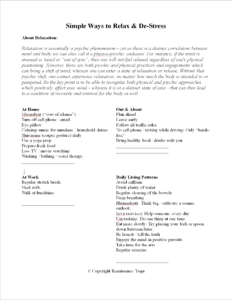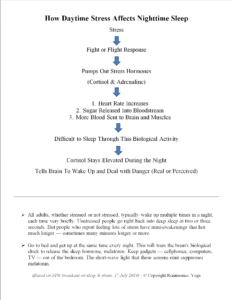Parental Involvement in Education: How Yoga Can Help
Parental Involvement in Education: How Yoga Can Help
Here we examine the crossroads of the pandemic, schooling, parenting,
and how yoga can help…
~ Be sure to scroll down to access the videos ~
Overview & Relevance
While the main tenet and dominant focus of my life has been the pursuit of the yogic ideal – in all realms of life, education too has been a major theme. First and foremost, as a spiritual aspirant and yoga teacher, there is a natural link and connection between yoga and education, as I aim to impart that knowledge both inside and outside of class. Beyond that, from 1995-97, I was a full-time graduate student in the department of Educational Leadership, Technology, and Administration at the University of Oregon where I received my master’s of science degree. One of my main areas of research was parental involvement in education; moreover, as a graduate student I was awarded a teaching fellowship in youth education wherein I worked year-round in the university’s largest community education and outreach program, attracting hundreds of students to our fall, spring, and summer enrichment classes and camps. And this work continued when I first arrived in Maryland as a program developer in Anne Arundel Community College’s Youth Education programs. So whenever I get opportunity or asked to present (yoga, meditation, stress relief etc) at school wellness nights sponsored by the PTA or the school administration then I am always. “All IN.”
With the pandemic and ensuing student / schooling upheaval, that seems to more profoundly affect our littlest ones, yoga (and its related practices) can hopefully serve as a tool to support parents and families striving (and struggling) to meet their children’s educational needs through distance learning platforms. As you know all too well, a large part of the responsibility falls on parents to help their child on many levels: academically, technologically, socially, and emotionally. And that is no small task, especially for parents accustomed to having their kids in school all day while they, the parents, engage in their other life obligations and professional callings.
Here then are a few yogic practices, resources, and guidelines that may be of use to parents as they partner with educators and administrators in addressing this massive reorganization of their child’s learning and schooling.
Simple Secrets for Success
Getting rid of stress is not so easy, so best is to try and prevent it from arising in the first place. Yoga works off of the theory of opposites. After a forward fold we do a backbend. And in the mental realm, the same theory applies. The best way to combat stress is to cultivate the antithesis: patience and tranquility. To achieve this, here are a few simple lifestyle points that may come in handy.
When taking on your role in helping, supporting, and mentoring your child at home in their schooling endeavors, be mindful of the following:
(a) Posture: Believe it or not, both standing and seated posture play a large role in our mental disposition. Perhaps, the biggest culprit in this regard is your computer. We hunch our backs, jettison our chin forward, and commit so many poor habits. (Note: For tips on seated posture, please watch our Chair Yoga video below.) So rather than standing in a hunched position looking over your child’s shoulder, and instead of turning your spine into an s-curve as you sit off to the side of the computer, be sure to give yourself a proper seat wherein you are both stable and comfortable. That will go a long way towards keeping the mind patient and calm when helping your child.
(b) Proper Environment: The theorem holds true that home is home, and school is school. In these times however, creating a school-like environment in some room or corner of the house is absolutely essential. The physical surroundings help goad the mind to the task at hand. Both you and your child will have a much easier time focusing if there are not household reminders that steal away your attention. And remember, no matter how difficult the problem, a focused mind is a calm mind, whereas a mind distracted by even the smallest of things is prone towards stress and inefficiency.
(c) Multi-tasking: This is one of the biggest myths and misnomers of modernity. A person cannot actually attend to many things at once. Verily, the mind can only do one thing at one time. The proof is how dangerous it is to text and drive. Both are relatively simple operations, but when done together they are deadly. So when helping your child with homework or a particular academic lesson, do not combine that with another duty or activity like cooking, watching a movie, or handling any other life scenario etc. In that case, you will neither be in the best position to help your child, nor will you be able to attend to your other chosen engagement. So when it is time to help your child, only do that. Setting aside a designated time period is probably the best way to go.
(d) Body Essentials: Every caretaker knows that as much as they may sacrifice to help someone, that cannot come at the expense of their own well-being. Otherwise, they will render themselves compromised and will no longer be able to help. So as a parent, pay strict attention to taking care of yourself. That means (a) getting proper sleep, (b) eating when you feel hungry (and not eating when you do not feel hungry), (c) staying well-hydrated, and (d) attending to natural call in a timely manner. By ignoring these basic needs, we tax the body; and, that invariably affects the mind, which in turn becomes a breeding ground for psychic tension and stress.
The above points may seem simple and basic, but believe it or not, that is the idea. Our diligence in attending to these foundational points will allow us to feel good and flourish.
The Yogic Breath
Chair Yoga
To try one of our full-length Chair Yoga videos, kindly browse our “On Demand” classes.
Or join our “live-online” Chair Yoga class every Tuesday at 9am and Sunday at 10am.
Corpse Posture / Shavasana
–
Here below is an example of a practitioner performing shavasana:
Teacher Perspective: What Works & How to Help
More Resources
Meditation & Relaxation Podcasts
Simple Ways To Relax & De-Stress
There are many habits and techniques we can employ during the day to reduce or even eliminate stress. Here is a page from my relaxation seminar handout.
How Daytime Stress Affects Nighttime Sleep
Sleep is an integral component of our overall state of health: physically, psychically, emotionally, and spiritually. Yet as mental beings, the thoughts we harbor and the stress we feel during the day invariably affects our ability to sleep at night. Here is a page from my sleep seminar handout.




Thank you for all of the wonderful information. I will pass it along.
Wonderful – thanks so much Teresa!!
Thank you for sharing about yourself. This information is a great reminder for me and some that I will definitely pass onto the families I work with. I find so many families with little ones are focused on wanting them to walk and talk that they forget about nutrition and consistency in their routines. Actually, I am also guilty of not attending consistently to my nutrition and exercise as I should. A great morning lesson.
Hi Gail,
Glad you found the post to be of use….
I generally find that these are lifelong reminders — constantly refining and implementing etc.
Thanks for checking in on this!!